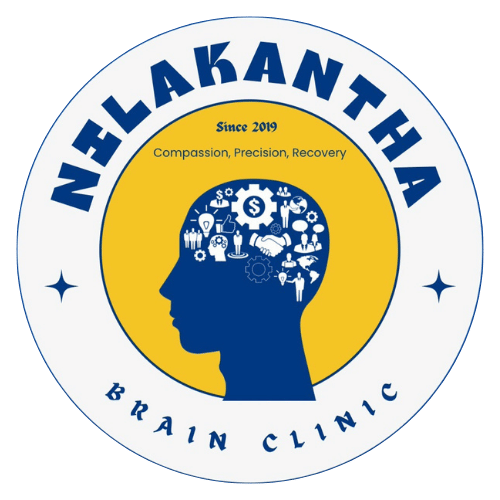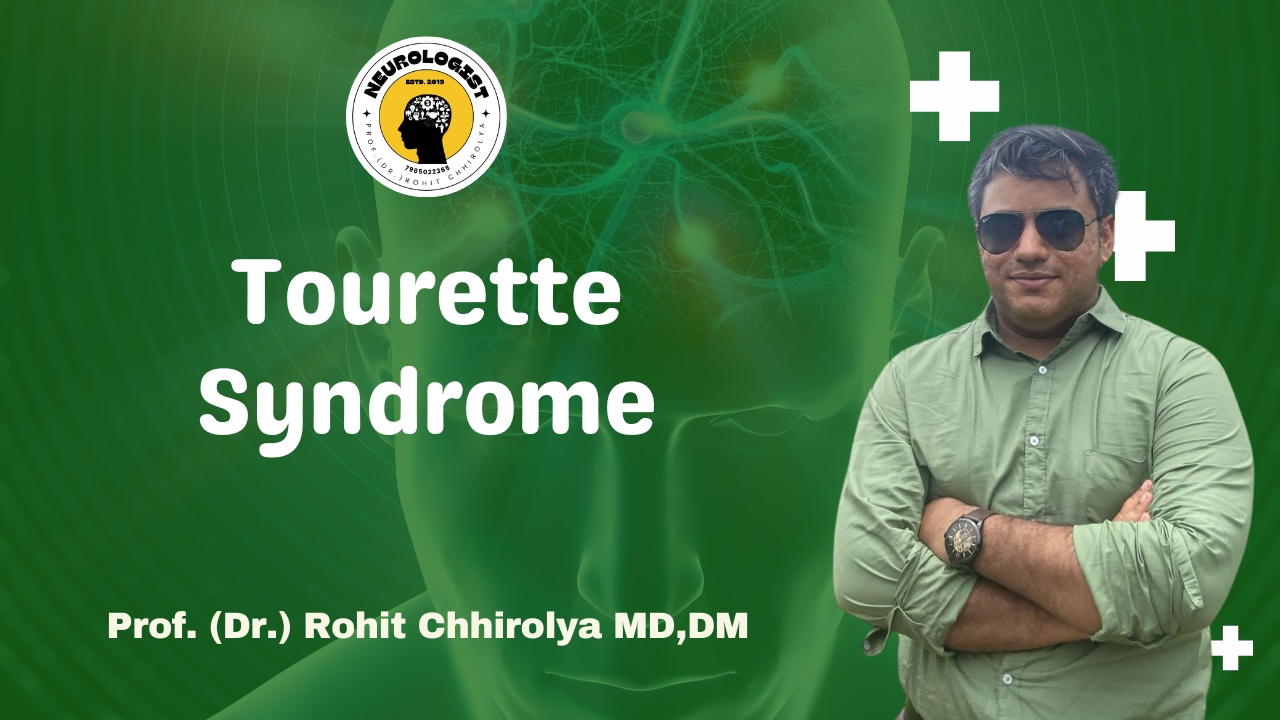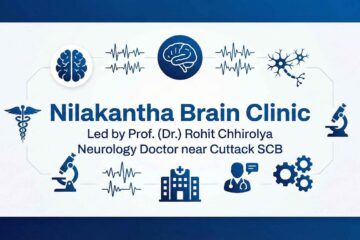Table of Contents
- What is Tourette Syndrome?
- Symptoms of Tourette Syndrome
- Causes and Risk Factors
- Diagnosing Tourette Syndrome
- Treatment Options
- Why Choose Nilakantha Brain Clinic?
- How to Find the Best Neurologist Near You
- Living with Tourette Syndrome
- Frequently Asked Questions (FAQs)
- Conclusion
What is Tourette Syndrome?
Tourette Syndrome (TS) is a neurodevelopmental disorder characterized by repetitive, involuntary movements and vocalizations called tics. First described by French neurologist Georges Gilles de la Tourette in 1885, TS typically emerges between ages 2 and 15, with boys being 3–4 times more likely to develop it than girls. While tics often peak during adolescence, many patients experience improvement in adulthood.
Tics are categorized into two types:
- Motor Tics: Sudden, brief movements like eye blinking, shoulder shrugging, or facial grimacing.
- Vocal Tics: Sounds or words such as throat clearing, grunting, or repeating phrases (echolalia).
Contrary to myths, TS does not affect intelligence or lifespan. Early intervention by the best neurologist in Cuttack can significantly improve quality of life through tailored therapies.
Symptoms of Tourette Syndrome
TS symptoms vary widely in severity and type. Key features include:
- Simple Tics: Brief, sudden actions (e.g., sniffing, head jerking, barking).
- Complex Tics: Coordinated movements (e.g., hopping, touching objects, mimicking gestures).
- Premonitory Urge: An uncomfortable sensation (itching, tension) relieved only by performing the tic.
- Waxing and Waning: Tics may fluctuate in frequency and intensity, often worsening with stress, excitement, or fatigue.
- Comorbid Conditions:
- 86% of TS patients have comorbid disorders like ADHD, OCD, or anxiety.
- Learning difficulties or sleep disorders may also occur.
If tics persist for over a year, consult a neurology doctor in Cuttack to confirm TS and rule out mimics like seizures or ADHD.
Causes and Risk Factors
While the exact cause remains unclear, research highlights:
- Genetics: Mutations in SLITRK1 or HDC genes disrupt dopamine and serotonin pathways.
- Brain Chemistry: Imbalances in neurotransmitters like dopamine, serotonin, or GABA.
- Environmental Factors:
- Prenatal complications (smoking, infections during pregnancy).
- Childhood streptococcal infections linked to PANDAS (Pediatric Autoimmune Neuropsychiatric Disorders)
- Gender and Age: Males and children aged 5–10 are at higher risk.
Diagnosing Tourette Syndrome
Diagnosis follows the DSM-5 criteria:
- Clinical History: Presence of motor and vocal tics for ≥1 year.
- Neurological Exam: Assesses reflexes, coordination, and sensory function.
- MRI/EEG: Rules out brain lesions, epilepsy, or structural abnormalities.
- Psychological Evaluation: Screens for ADHD, OCD, or anxiety.
At Nilakantha Brain Clinic, the best neurology specialist in Cuttack uses advanced tools like video EEG and genetic testing for precise diagnosis.
Treatment Options
Treatment focuses on reducing tic severity and improving daily functioning:
1. Behavioral Therapy
- CBIT (Comprehensive Behavioral Intervention for Tics): Teaches patients to recognize premonitory urges and replace tics with less noticeable actions.
- Habit Reversal Training (HRT): Combines awareness training and competing responses.
2. Medications
- Alpha-2 Agonists (Clonidine): Reduce tics by modulating norepinephrine.
- Antipsychotics (Risperidone, Aripiprazole): Block dopamine receptors in severe cases.
- SSRIs (Fluoxetine): Manage comorbid anxiety or OCD.
3. Advanced Therapies
- Deep Brain Stimulation (DBS): Electrodes implanted in the thalamus regulate abnormal signals in refractory cases.
- Botulinum Toxin Injections: Temporarily paralyze muscles causing focal tics (e.g., eye blinking).
Collaborate with the best neurologist doctor in Cuttack to create a personalized plan combining therapy and medication.
Why Choose Nilakantha Brain Clinic?
- Expert Leadership: Prof. Dr. Rohit Chhirolya, a DM Neurologist with 15+ years’ experience, specializes in pediatric and adult movement disorders.
- Holistic Care: Offers CBIT, DBS, and counseling under one roof.
- Child-Centric Services: Play-based therapies and school collaboration for young patients.
Searching for a neuro doctor in Cuttack? Check the Cuttack neurology doctor list or visit Nilakantha Brain Clinic.
How to Find the Best Neurologist Near You
- Credentials: Verify specialization in movement disorders and TS.
- Technology: Ensure access to MRI, EEG, and DBS.
- Patient Reviews: Testimonials highlighting empathy and success rates.
Dr. Chhirolya, recognized as the top neurologist in Cuttack, provides evidence-based, compassionate care.
Living with Tourette Syndrome
- Education:
- Inform teachers/employers about TS to secure accommodations (extra exam time, flexible deadlines).
- Stress Management:
- Practice mindfulness, yoga, or art therapy to reduce tic triggers.
- Support Networks:
- Join groups like NHPians on Facebook for peer advice.
- Diet and Sleep:
- Avoid caffeine and prioritize 7–9 hours of sleep to minimize tic exacerbation.
For resources, follow Dr. Chhirolya on Instagram and YouTube.
Frequently Asked Questions (FAQs)
Q1. Can Tourette Syndrome be cured?
A: While there’s no cure, treatments like CBIT and medications can manage symptoms effectively.
Q2. Are all TS patients prone to swearing (coprolalia)?
A: Only 10–15% of TS patients exhibit coprolalia. Most have mild motor/vocal tics.
Q3. Is TS linked to intelligence?
A: No. Many TS patients have average or above-average IQ.
Conclusion
Tourette Syndrome requires a blend of expert care, patience, and tailored strategies. Whether you need behavioral therapy, medication adjustments, or advanced interventions, the best neurology specialist in Cuttack at Nilakantha Brain Clinic offers comprehensive solutions. Don’t let tics control your life—call 7985022365 or visit Nilakantha Brain Clinic today!


